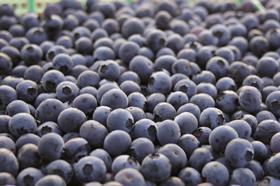
Eating a diet rich in green leafy vegetables, beans, berries, wholegrains and wine can help to slow normal brain ageing and cognitive decline, researchers have claimed.
A study by scientists at Rush University Medical Center in Chicago showed that elderly adults who strictly followed the 'Mind' diet were seven and a half years younger cognitively over a period of nearly five years than those who adhered the least.
“One of the more exciting things about this is that people who adhered even moderately to the MIND diet had a reduction in their risk for AD. I think that will motivate people,” Martha Clare Morris, a nutritional epidemiologist at Rush University Medical Centre, said.
In an earlier study, the researchers showed that the diet developed at the Rush University Medical Centre may reduce the risk of developing Alzheimer’s disease.
Mind, or Mediterranean-Dash diet intervention for neurodegenerative delay, is a hybrid of the Mediterranean diet rich in olive oil and vegetables, and the dietary approaches to stop hypertension (Dash) eating plan designed to control high blood pressure.
It consists of 15 dietary components and recommends at least three servings of wholegrains, a salad and another vegetable each day and a glass of wine. Beans and poultry should be eaten at least twice a week and fish once a week.
Followers of the diet limit the amount of the five unhealthy food groups – red meat, butter, margarine, cheese, pastries and sweets and fried or fast food – they eat.
The only fruits in the Mind diet are berries.
The researchers tested the cognitive ability of 960 adults with an average age of 81.4 years at 40 retirement community and senior public housing units in the Chicago area over a period of 4.7 years. They uncovered a slower decline in mental ability among the elderly who adhered most closely to the diet.
Morris added: “There is still a great deal of study we need to do in this area, and I expect that we’ll make further modifications as the science on diet and the brain advances.”






No comments yet